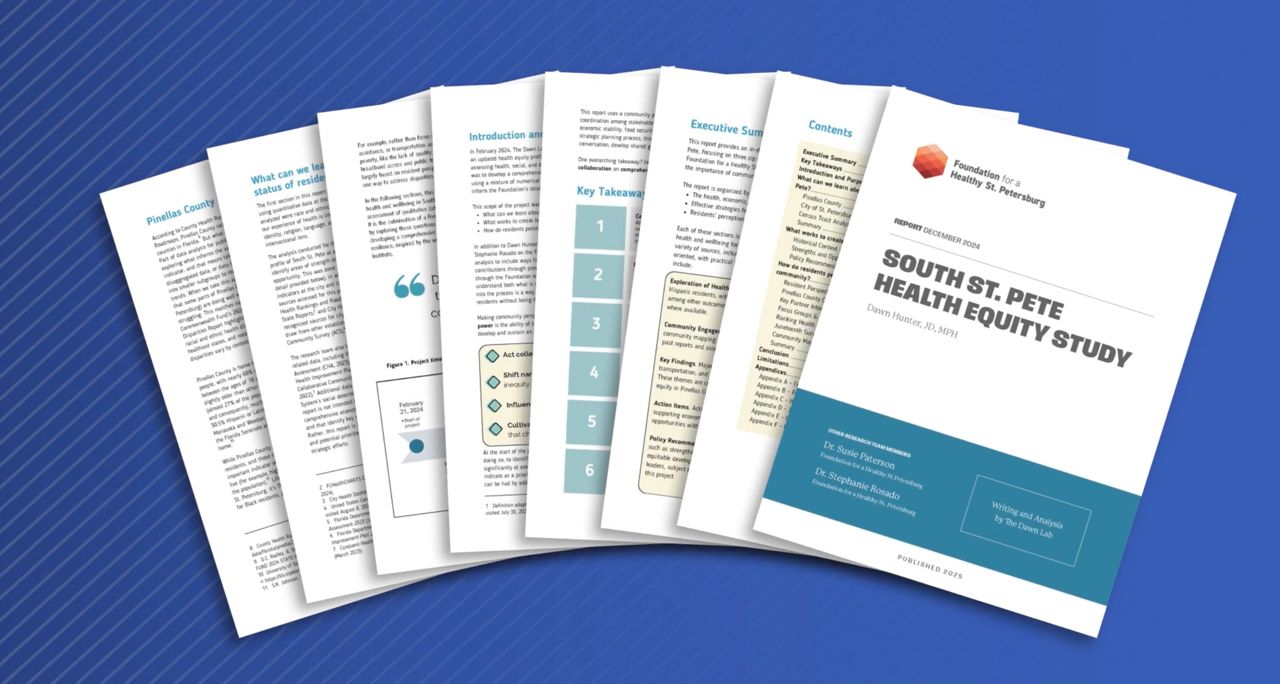TAMPA, Fla. — April is Minority Health Month and medical experts in our area are using this month to shine a light on some deadly medical conditions impacting minority communities.
Tampa General Hospital transplant surgeon Dr. Anthony Watkins said the statistics for one of those conditions may come as a surprise to some.
What You Need To Know
- April is Minority Health Month and medical experts in our area are using this month to shine a light on transplants
- Dr. Anthony Watkins of TGH said “Blacks have three times more rates of end stage kidney disease or kidney failure than whites"
- Watkins created African American transplant program
“Blacks have three times more rates of end stage kidney disease or kidney failure than whites but yet, they receive less transplants at a far less rate than white people,” he said.
According the National Institutes of Health, overall white and Asian patients consistently had the highest rates of kidney transplantation, followed by Hispanic patients; Black, Native American, and Native Hawaiian/Pacific Islander patients had lower rates.
For surgeons like Watkins, that’s unacceptable. So, he’s decided to do something about it.
“The African American transplant program we want to create is one way we can mitigate some of these challenges," Watkins said. "And what that does is you provide a group of providers who are racially congruent with patients and that helps break down some of those barriers."
He’s expecting to have that program up and running in the coming months.
“The program is projected to go live in August or September," Watkins said. "We want to do a trial run this summer. The program will consist of surgeons, kidney doctors, social workers and a transplant coordinator that are all of African American descent so that we can meet with these patients one on one and mitigate some of the challenges they may have so we can get them on the waiting list for a transplant."
Some of those barriers are evident for both on the donors and the recipients. He says things like access to care, distrust and misinformation are all barriers. The social determinants of health also play a huge role.
When it comes to who donates organs, he says there’s something people are often unaware of. Especially when it comes to the lower number of Black donors compared to other races.
“The race piece is a social construct. Lot of people don’t realize that. So race is not biological. The reason you hear the racial piece when it comes to organ donation or organ transplantation is because oftentimes people who have the same racial and ethnic background tend to have the same blood type,” he said.
Tampa resident Herman Dallas knows just how important a kidney transplant can be.
“Over the years I ignored the signs of high blood pressure. You know they call it the silent killer, so for many years I didn’t even know I had it,” Dallas said. “It beat up my kidneys to the point where it sent me to in stage reno and I ended up unconscious and woke up in Brandon regional hospital and that’s when I got the news that I lost my kidneys, and I was gonna have to be on dialysis to stay alive.”
According to medical experts, it’s a condition common in the Black community.
Dallas says by the time he made the discovery, it was about as bad as it gets, which made staying alive much harder than he initially thought.
“Your kidney and his kidney works 365 days a year, 24 hours a day. When you’re on dialysis, your kidney only works three times a week, three hours and 45 minutes,” he said.
For the next five and a half years he says he had to weed out any doubts about what it would take to save his life and be open to getting a kidney transplant. Last year, he finally got that call.
“That call was the best call, one of the best calls of my life. I got that like 6:30 in the morning from Tampa General and the young lady called me and said, 'Mr. Dallas we got a kidney somebody else didn’t want and you’re a perfect match for it if you want it,'” Dallas said.
According to the National Kidney Foundation, African Americans are more than three times as likely to experience kidney failure than their white counterparts. And a 2020 transplantation article identifies the Black population as less likely to be put on a kidney transplant waiting list.
Minority populations have much higher rates of high blood pressure, diabetes, obesity and heart disease, all of which increase the risk for kidney disease, according to the National Kidney Foundation.









